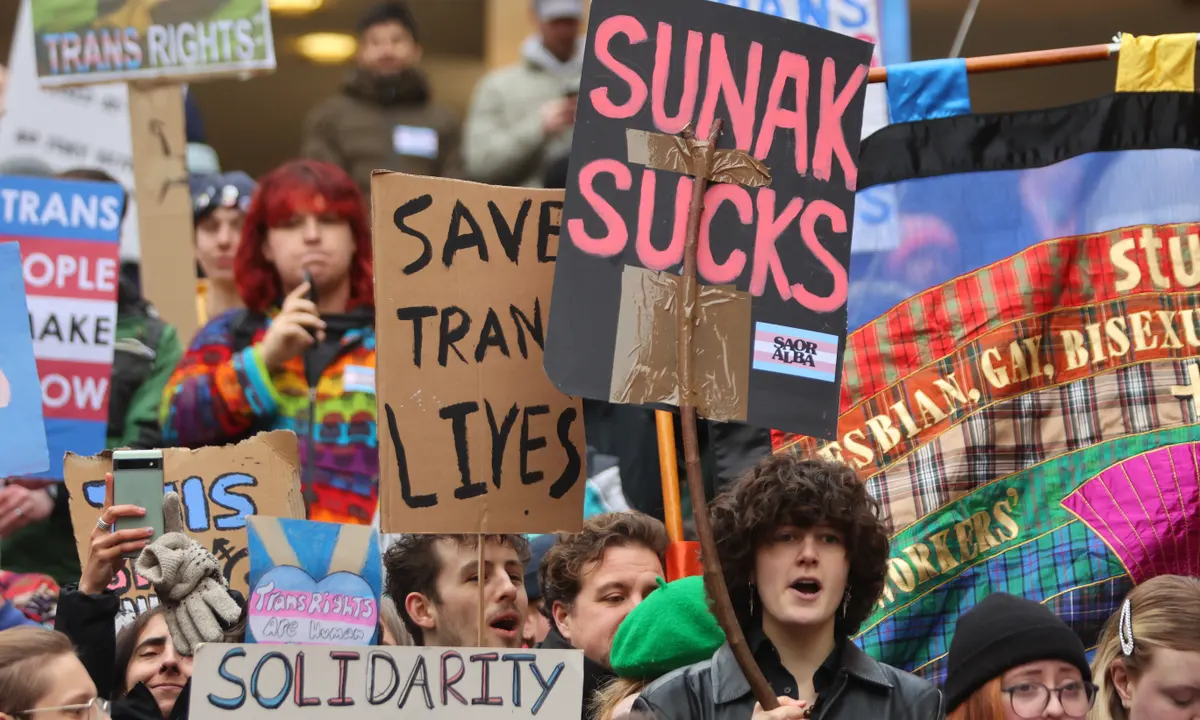Oscar Hoyle, who runs Blossom, a support service for LGBTQ+ Gen Z, notes that politics is unavoidable for the transgender and non-binary young adults he works with. Many of them will be voting for the first time, driven by concerns about their future.
Hoyle observes a sense of hopelessness among these young voters towards both major parties, with some considering the Liberal Democrats and Greens for their supportive stance on LGBTQ+ issues, while others plan to spoil their ballots in protest.
Trans-related issues have been a focal point in the UK election campaign, with heightened attention in recent days. Activists have protested against the government’s ban on puberty blockers, which was supported by Labour’s shadow health secretary.
This decision has intensified scrutiny on Labour, particularly after JK Rowling’s public criticism of the party’s stance on trans rights, accusing Keir Starmer of neglecting women’s concerns.

Politics Unavoidable for LGBTQ+ Gen Z as Trans Issues Highlighted in UK Election Campaign
Hoyle highlights the media’s role in amplifying transphobic rhetoric, which has deeply affected the young people he supports. Increased media literacy among these young voters doesn’t alleviate the emotional toll of constant negative coverage. Hoyle emphasizes that the root issue lies with politicians’ irresponsible discourse on trans lives, which is then picked up by the media.
Steph Richards of TransLucent points out that the trans debate is not a primary concern for the general public, who are more focused on issues like the NHS, immigration, and racism. Despite this, Richards has experienced the campaign as distressing due to persistent undermining of trans existence. Polls indicate that transgender issues rank low in voter priorities but are overemphasized by politicians.
The discussion on gender recognition reforms has also been contentious, with concerns over maintaining medical diagnosis requirements. Activists like Liz Ridgway and Jane Fae stress the need for genuine engagement with the trans community to address their actual needs, particularly in healthcare.
Fox Fisher criticizes the political exploitation of trans rights, urging a reframing of the debate that includes trans voices and focuses on their real issues.
